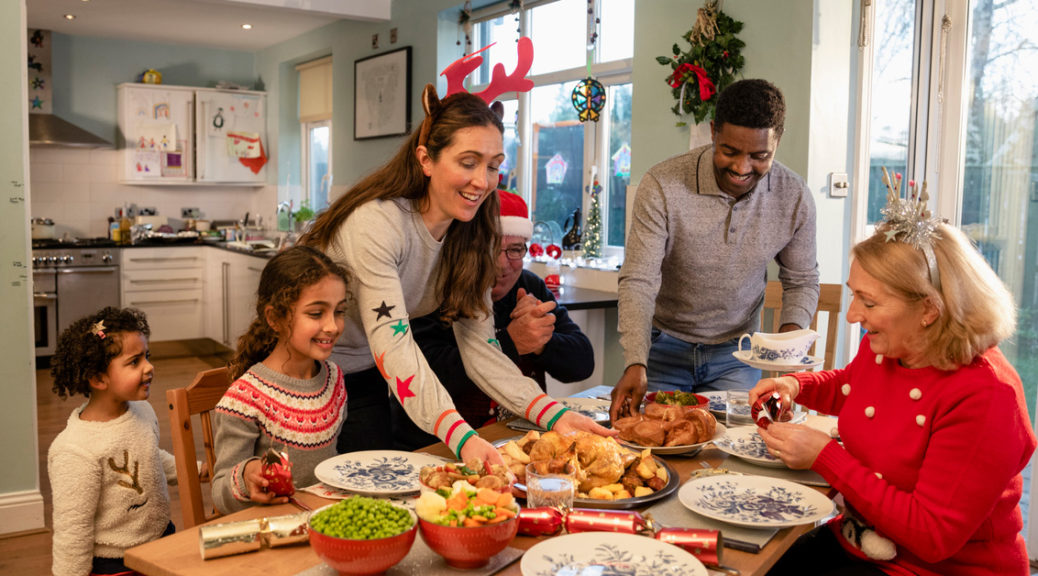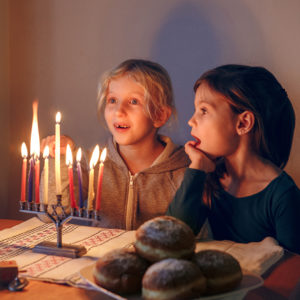4 Ways Foster Parents Can Support Children in Foster Care Through the Holidays

December brings the holiday season and all the festivities, gatherings, and complicated emotions to the forefront of everyone’s lives. For youth experiencing foster care, holidays like Christmas, Hanukkah and Kwanzaa can be a reminder of the family they’re apart from or have lost, of lost traditions and memories, and all the changes they’ve endured. For the foster parents and families who care for these youth, this time of year is often a whirlwind of busy schedules, changing routines and so much more.
Make a powerful difference in a child’s life. Become a foster parent.

For children who have experienced abuse, neglect or other trauma, the holidays may be difficult to get through and evoke feelings of sadness, loss and grief.
Becky Westring, a KVC foster parent, knows the heartaches and joys this season brings firsthand. She says the two children she cares for miss their families and traditions, but she’s grateful for the opportunity to support them while their parent works toward reunification.
“It’s challenging to watch the children in my care miss their family, especially during this time of year. We try to add in their traditions that they do during the year especially during the holidays, but at the same time, some things they don’t want to share because that was their family tradition,” said Westring.
Support Children in Foster Care Through the Holidays
Like the Westrings, as your family recognizes and celebrates special days, remember that if a child in care is struggling with grief and other strong emotions, you may need to pause to provide some extra support. Here are four ways you can provide encouragement and support to children in your care during the holiday season.
- Create a safe space where they feel they can openly share. Ask them how they’re feeling and allow them the time and space to open up as they’re ready. Encourage your child to share their feelings about the losses they have experienced and not bottle them up. This will reinforce that emotions are normal, valid and important.
- Remember there is no right or wrong way to handle special occasions. You may choose to follow family traditions or do things a little differently. What you do one year may not be what you do the next. No matter what, be sure to do the things that are special and important for your entire family.
- Talk with your child about their past celebrations and holidays. If possible, gather information about the child’s previous positive memories so you can incorporate them into your current family traditions. Involve your entire family and make decisions together about how to recognize and celebrate special occasions.
- Remember that your child’s challenging behaviors on special occasions relates to their grief. Grief can cause children to behave in unacceptable ways, but it’s important to understand and accept their feelings rather than to become angry with them. Work to ensure that the way you recognize and celebrate special occasions provides an opportunity for your child to heal.
Grateful For the Opportunity to Help Kids in Need
Reflecting on what she’s grateful for this December, Westring said, “I’m grateful for a lot. A happy, healthy family. Two beautiful bonus children that know we love them and are safe, happy and healthy.”
Originally inspired to become a foster parent through her husband and his experience growing up in a big family and her own holiday experience in her small family, Westring was inspired to do something bigger.
“We had gotten ready for Christmas, our three kids, my husband and me. We were settled, content and happy. But something just triggered me, and I knew there were so many kids that didn’t have that. That was it. I did some research and knew immediately I wanted to help kids by becoming a foster parent,” said Westring.
Westing and her husband celebrated the last holiday season with their first placements since they got licensed.
“We got lucky. These kids blended with our family so well,” said Westring.
How Can You Help?
Right now, there is an urgent need to more individuals and families to foster children in crisis. The most significant way you can help is by becoming a foster parent. We’re especially looking for people willing to care for siblings sets and teens. Click here to learn more about fostering and take the first step today!
If fostering isn’t right for you, you can still support children served by KVC – become a Holiday Hero or an Everyday Hero today!





